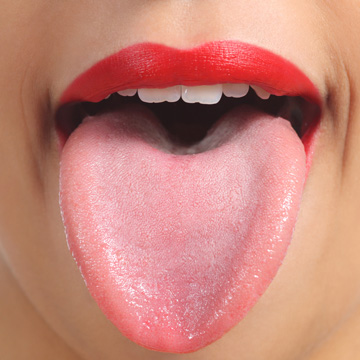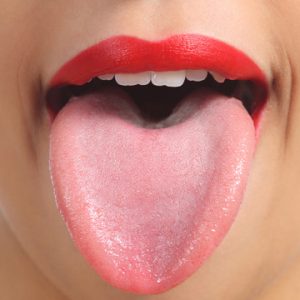
 San Francisco, Marin, and Oakland, CA
San Francisco, Marin, and Oakland, CA
The human tongue plays a crucial role in your mouth when tasting, chewing, swallowing, speaking, and breathing. For some, the tongue may interfere in daily life or cause other oral health concerns. When your tongue pushes against your teeth as you swallow or when enunciating certain words, it is called tongue thrust, and the condition could cause teeth to protrude or a narrow airway that leads to snoring. The experienced neuromuscular dentists in San Francisco at Glen Park Dental are well-versed in identifying and correcting tongue thrust, and we are sharing ways to tell if you have it and how to treat it.
What are the symptoms of tongue thrust?
Although there is more than one symptom indicating tongue thrust, the primary sign is your tongue pushing against the back of your teeth when you swallow. Tongue thrust can be easier to detect when you attempt to swallow. According to the highly-trained neuromuscular dentists in Marin, below are some more subtle symptoms you may notice if you suffer from tongue thrust.
- Noticing a difference in the way you eat, chew, or speak compared to others could indicate a possible neuromuscular condition.
- When your teeth become misaligned or gapped, it could be from tongue thrust. The continuous gradual pressure moves your teeth and may require orthodontic treatment for optimum performance.
- Your skull structure and anatomy can cause complications. A narrow face and larger tongue may be the cause or result of your tongue thrust.
It may be tempting to self-diagnose for tongue thrust based on the information provided. However, the best way to determine if you have tongue thrust is to visit a qualified neuromuscular dentist in Oakland at Glen Park Dental. Through physical exams and x-rays, we can determine the cause of your tongue thrust and prepare a treatment plan based on your needs.
What causes tongue thrust?
Most cases of tongue thrust occur in children. The Registered Dental Hygienist magazine states that “thumb suckers and pacifier users should be talked to at an early age, and terminating the habit before permanent teeth erupt is advantageous. A mouth breather generally becomes a tongue thrust swallower.” The San Francisco board-certified family dentists explain tongue thrust often develops because of untreated childhood behaviors, but it could also occur because of your natural facial structure. Either way, when you notice your tongue pushing against your teeth, contact our office to schedule an appointment so we can address the situation early.
What are the treatment options for tongue thrust?
Tongue thrust typically does not correct itself and requires the help of a neuromuscular dentist. Otherwise, ignoring the issue could lead to life-long dental health problems and a restricted airway that leads to sleep apnea. The qualified Marin family dentists can help your child if he or she has tongue thrust. Below are some standard treatment options available for patients with this orofacial myofunctional disorder.
- Mouth Exercises – When you retrain and strengthen your facial and oral muscles to move differently, they can rest in an appropriate, more natural position. This is done through myofunctional therapy.
- Oral Appliances – Depending on your oral history, a custom oral appliance worn throughout or part of the day may help prevent your tongue from pushing on your teeth.
- Behavioral Changes – Younger patients often hold their tongues in a habitual pattern. When the pattern is one of thumb sucking, pacifier use, or mouth breathing, changing the tongue’s behavior through exercises and conscious observation can alleviate tongue thrust. The treatment can work in adults as well.
- Orthodontia – The most common conditions tongue thrust cause is tooth misalignment or crookedness. With orthodontic treatment, traditional braces can correct extreme cases of misaligned smiles, or you can discretely realign your slightly crooked smile with Invisalign clear aligning trays.
Neuromuscular Dentists in Marin, Oakland, and San Francisco, California
Orofacial myofunctional disorders such as tongue thrust can impede a child’s growth and development, which is why early intervention is vital to their health. Tongue thrust may lead to advanced dental conditions that require additional time and money to correct. Therefore, if you think you or your child suffers from tongue thrust or if you have questions about the condition, feel free to contact the Oakland neuromuscular dentist near you at Glen Park Dental at (415) 585-1500 or request a consultation online.


